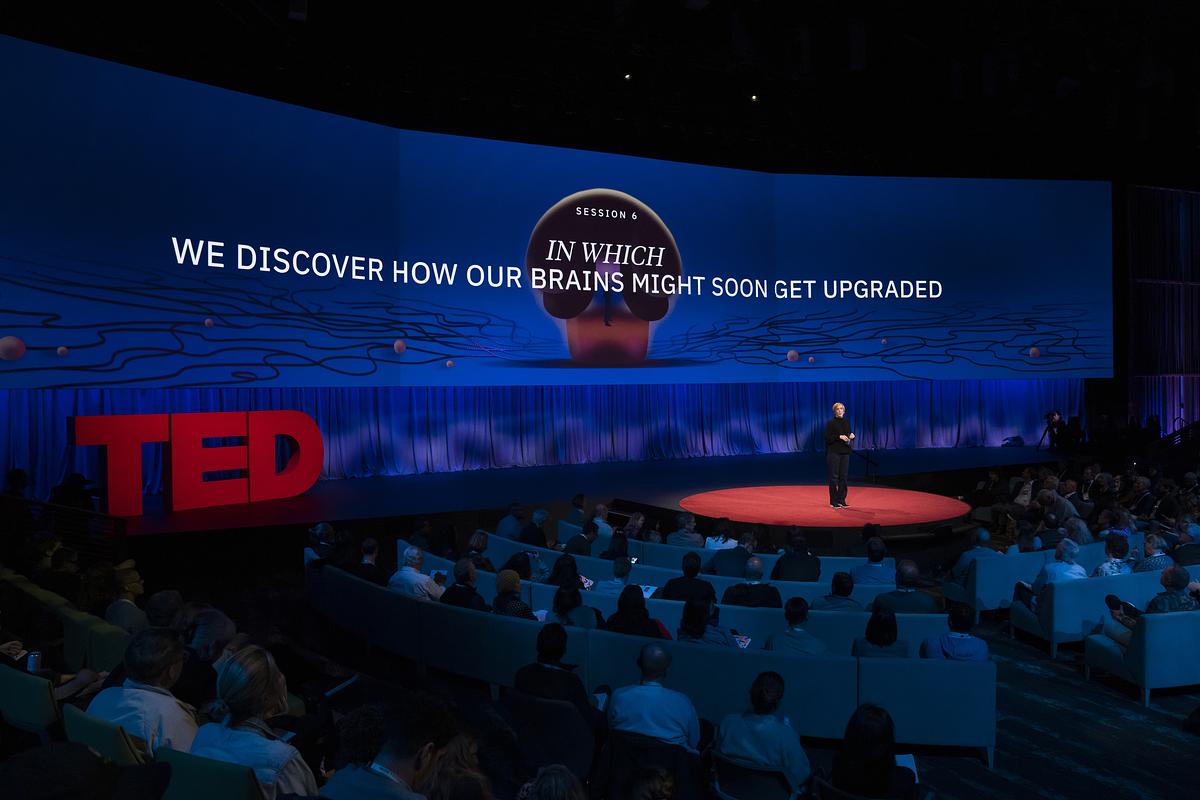
TED’s head of curation Helen Walters speaks at Session 6 of TED2023: Possibility on April 19, 2023, in Vancouver, BC, Canada. (Photo: Gilberto Tadday / TED)
In a mind-bending Session 6 of TED2023, neurotech, mental health and breakthroughs in brain-computer interfaces took the mainstage, with seven incredible speakers sharing ideas on how our brains may soon get an upgrade.
The event: Talks from Session 6 of TED2023: Possibility, hosted by TED’s head of curation Helen Walters
When and where: Wednesday, April 19, 2023, at the Vancouver Convention Centre in Vancouver, BC, Canada
Speakers: Luis von Ahn, Andy Dunn, Francesca Hogi, Gus Worland, Maya Shankar, Nita Farahany, Conor Russomanno
The talks in brief:
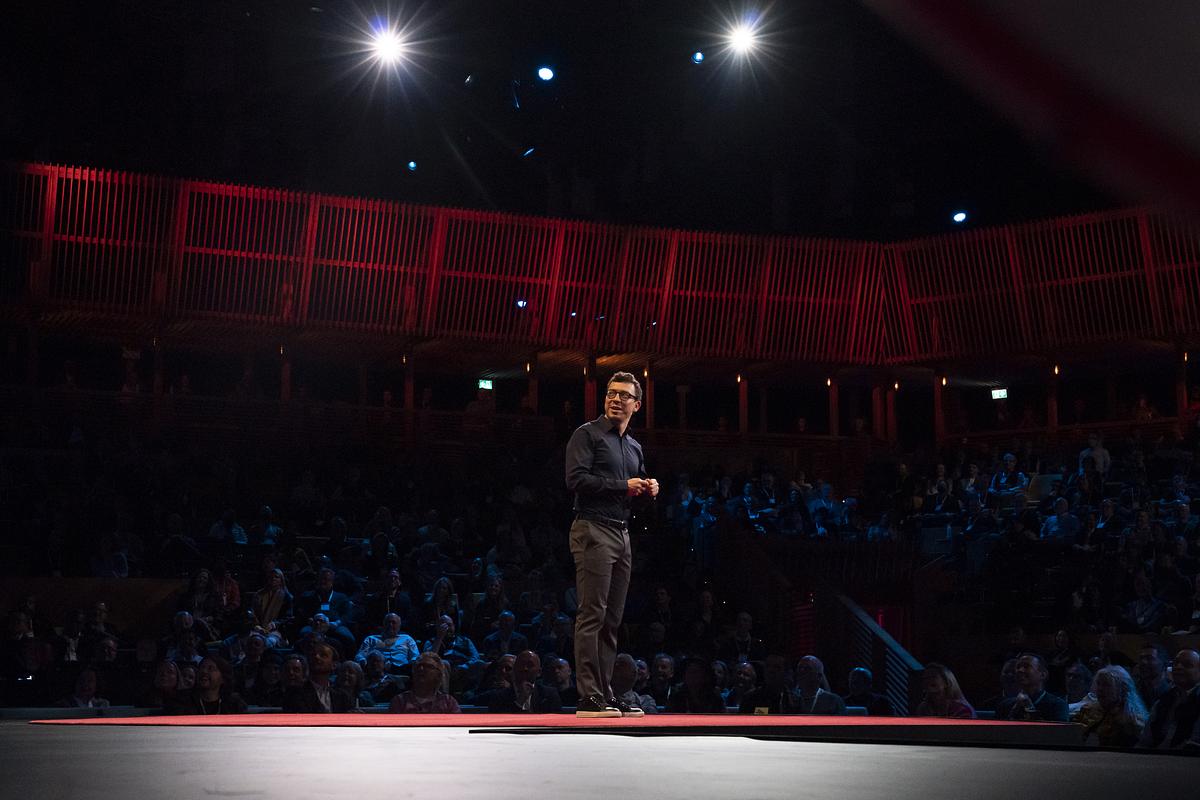
Educational equity technologist Luis von Ahn speaks at Session 6 of TED2023: Possibility on April 19, 2023, in Vancouver, BC, Canada. (Photo: Gilberto Tadday / TED)
We often think of education as an equalizing force, but unequal access to education actually worsens inequality. Motivated by his experience in his native Guatemala, educational equity technologist Luis von Ahn embarked on an ambitious mission: to boost access to education globally. The brainchild of that effort, Duolingo, now has hundreds of millions of users. But in designing Duolingo, von Ahn faced a big problem: How could an app designed to actually teach you something compete with platforms like TikTok and Instagram, some of the most addictive things humans have ever created? If Duolingo was the “broccoli” of smartphone apps, von Ahn decided he would have to “make broccoli taste like dessert.” The result: an app that harnesses the psychological techniques of social media and mobile games for a good cause.
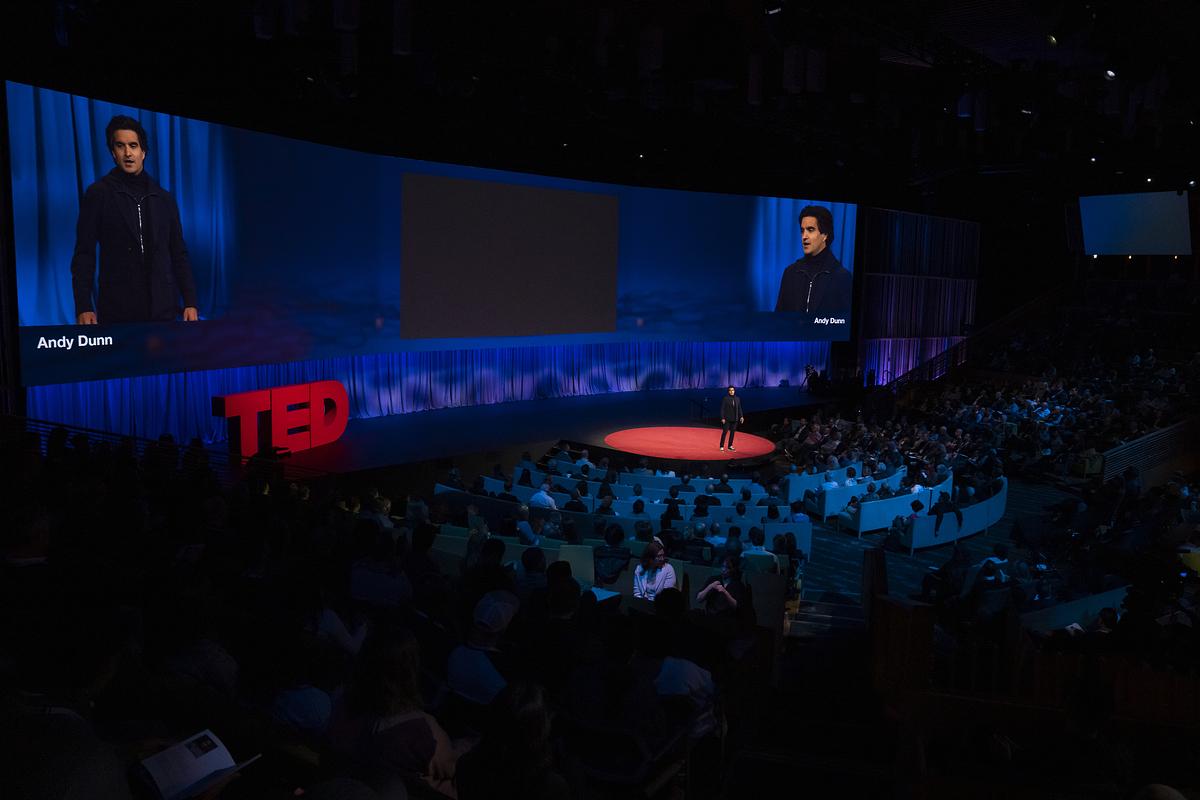
Mental health truth-teller Andy Dunn speaks at Session 6 of TED2023: Possibility on April 19, 2023, in Vancouver, BC, Canada. (Photo: Gilberto Tadday / TED)
Mental health truth-teller Andy Dunn began suffering from manic episodes due to bipolar I disorder in his early 20s, around the same time he was creating his immensely successful online retail company Bonobos. Such mental health issues have been shown to appear at higher rates among entrepreneurs, often applauded for their “crazy” ideas while their darker “shadows” are ignored. Dunn shares his journey to mental wellness and offers a vision of a future where entrepreneurs are “able to dream crazy dreams” while also being held accountable, in and out of the boardroom. He calls for more accessible, affordable healthcare for all and asks everyone to consider the truly conditional nature of love and leadership. “Entrepreneurs are not gods, even when we think we are,” says Dunn.
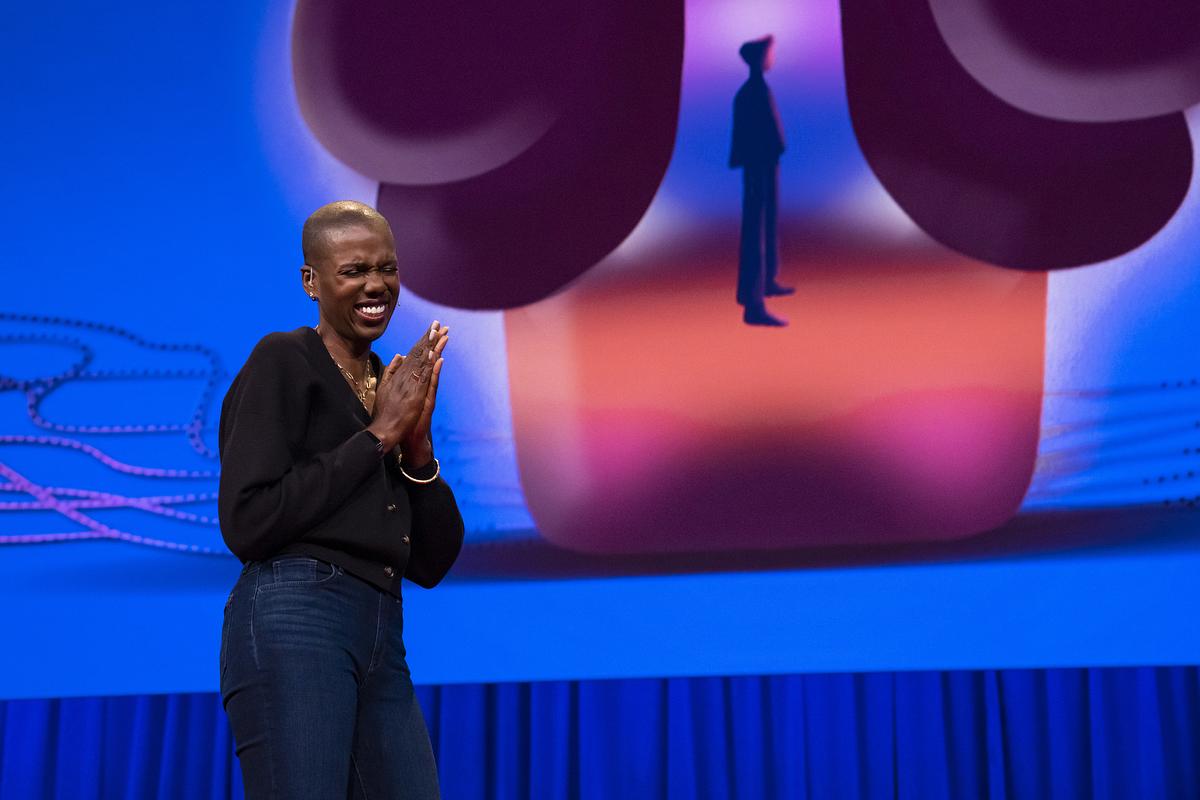
Love coach and podcast host Francesca Hogi speaks at Session 6 of TED2023: Possibility on April 19, 2023, in Vancouver, BC, Canada. (Photo: Jasmina Tomic / TED)
“You were born knowing how to love,” says love coach, podcast host and TED community member Francesca Hogi. She spent 10 years speaking to thousands of individuals about their romantic hopes and dreams, uncovering the pervasiveness of false marketing that claims “while you can’t buy love, you can buy your worthiness to be loved.” Hogi says this propaganda makes us believe love is external and scarce, instead of internal and infinite. To find true love, she says to begin with cultivating love for yourself within, and “transcend the shallow fantasy of love you’ve been sold for so long.”
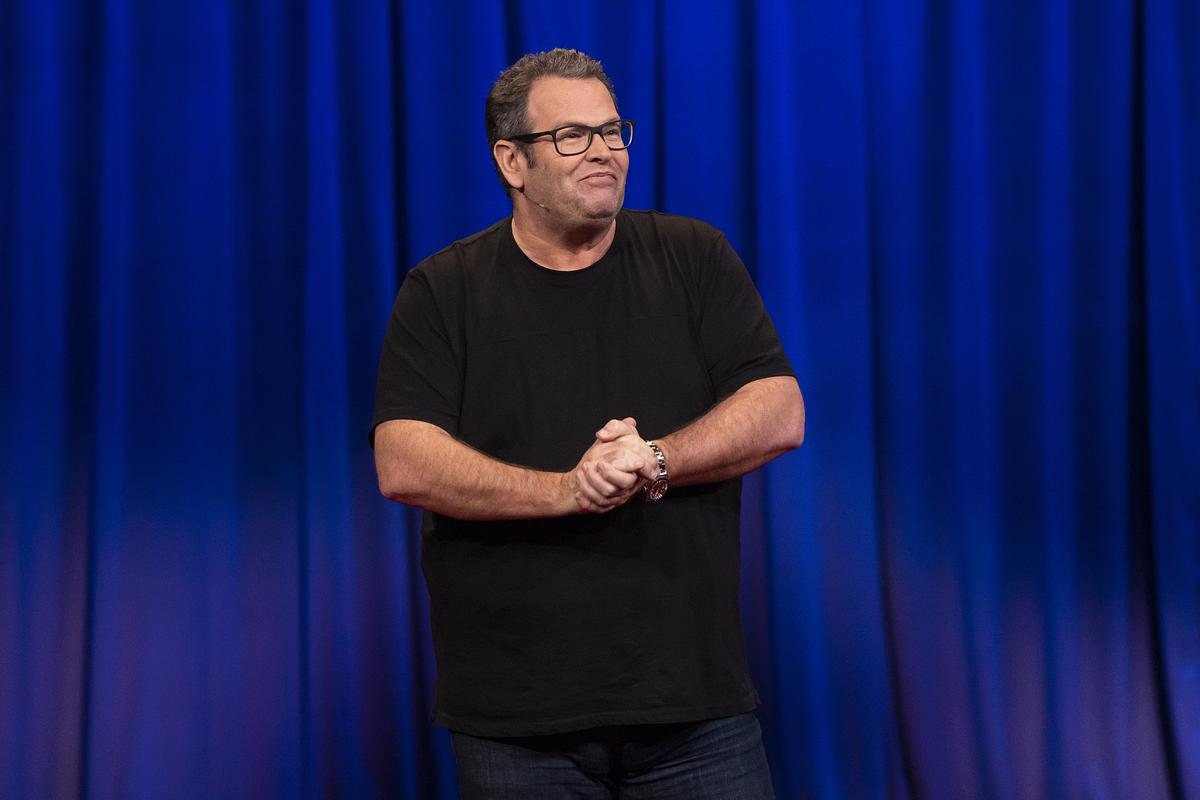
Mental fitness advocate Gus Worland speaks at Session 6 of TED2023: Possibility on April 19, 2023, in Vancouver, BC, Canada. (Photo: Gilberto Tadday / TED)
Lots of people talk about the need to be physically fit, but mentally fit? Not as much. Radio host Gus Worland is trying to change that by helping people develop the skills and “emotional muscle” needed to recognize when they’re struggling, learn how to talk about it and be vulnerable enough to ask for help. With his nonprofit Gotcha4Life, Worland is spreading this work in the hopes of ending suicide and breaking the stigma around mental health issues. He shares the story of his best friend and mentor, who took his own life years ago and issues a call to everyone to “look after their own villages” and check in on the most important people in their lives – today. Where to start? It can be as simple as sending this text message to the people that mean the most to you, Worland says: “I love you. I miss you. See you soon xoxo.”
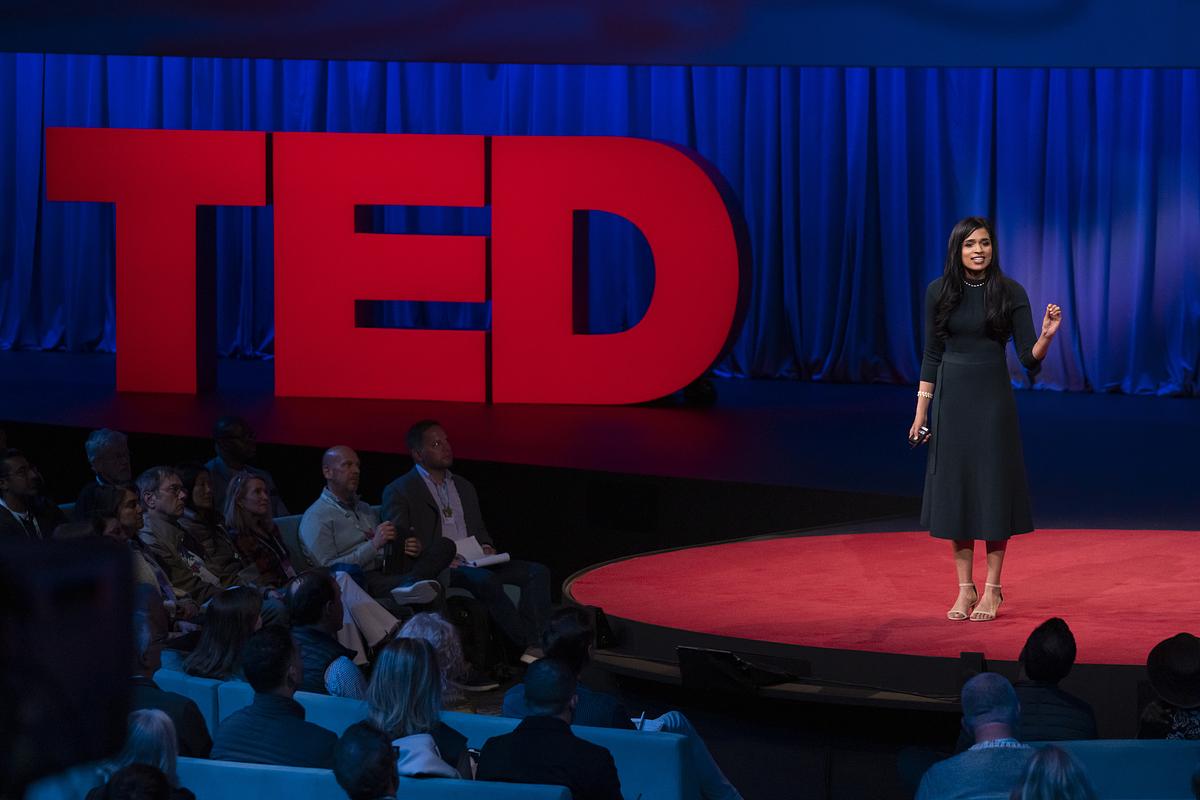
Cognitive scientist Maya Shankar speaks at Session 6 of TED2023: Possibility on April 19, 2023, in Vancouver, BC, Canada. (Photo: Jasmina Tomic / TED)
Who are you, and how do you transform in the face of change? Cognitive scientist Maya Shankar shares three questions you can ask to find out who you are when the world feels like it’s shifting under your feet. First: “How does this change change what you’re capable of?” Next, “How might this change change what you value?” And third: “How might this change change how you define yourself?” Shankar shares stories — and the science behind change — of people who stepped out of their comfort zones and rigid mindsets and found themselves changed for the better. Maybe through their experiences, and Shankar’s own story as well, a new, lesser-traveled yet more rewarding and expansive path rich with possibility awaits.
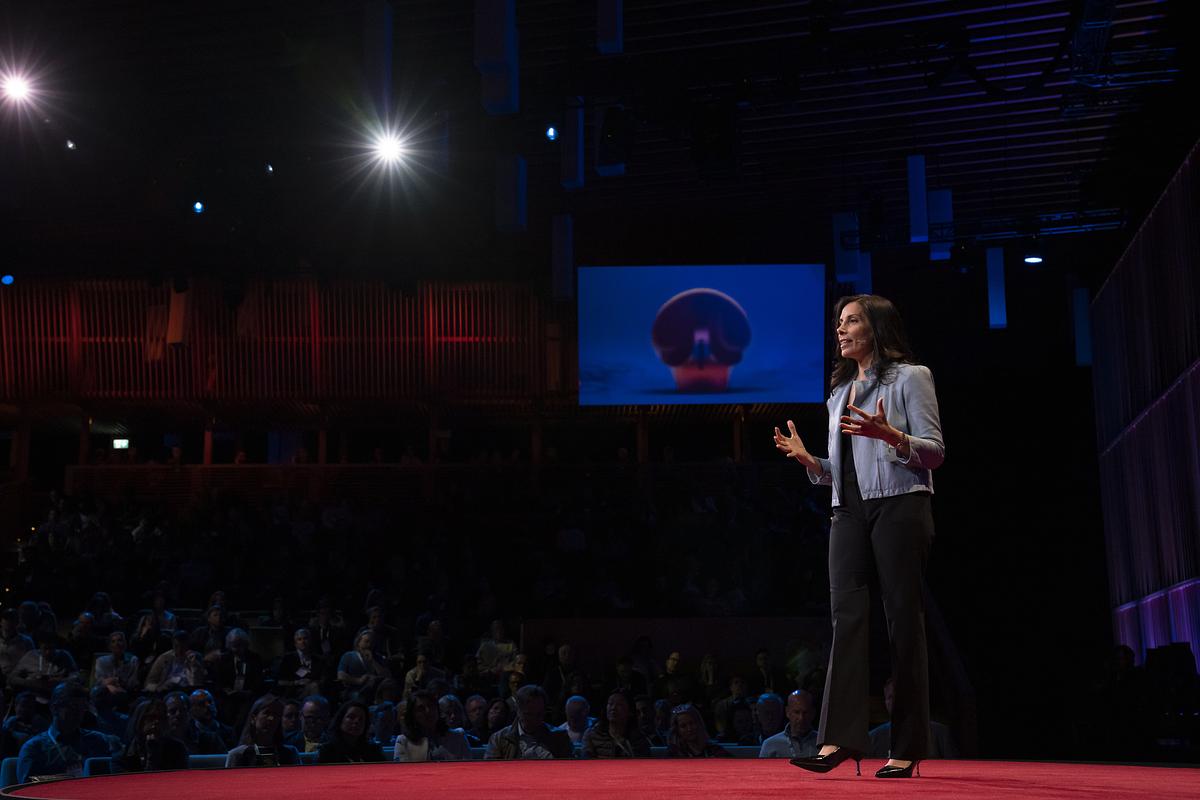
Neurotechnology ethicist Nita Farahany speaks at Session 6 of TED2023: Possibility on April 19, 2023, in Vancouver, BC, Canada. (Photo: Jasmina Tomic / TED)
While we can track the minutiae of our bodies (heart rate, blood pressure, temperature and even whether we’re snoring too loud) via a host of wearables and other devices, there is very little technology that allows us to track our brain activity. All of that is about to change. Neurotechnology ethicist Nita Farahany demonstrates how we’re witnessing the dawn of technology that will allow us to record our most private data: the electromagnetic pulses that map our thoughts and desires. This information will then unlock (and, indeed, is already unlocking) the potential to self-program ourselves via brain stimuli that could help us treat everything from depression to epilepsy. There’s a catch, however. Who is collecting our brain data, and how will they use it? Farahany argues that without a recognized and protected “human right for cognitive liberty,” we could just as easily benefit from healing as we could also fall prey to microtargeting, surveillance and manipulation.
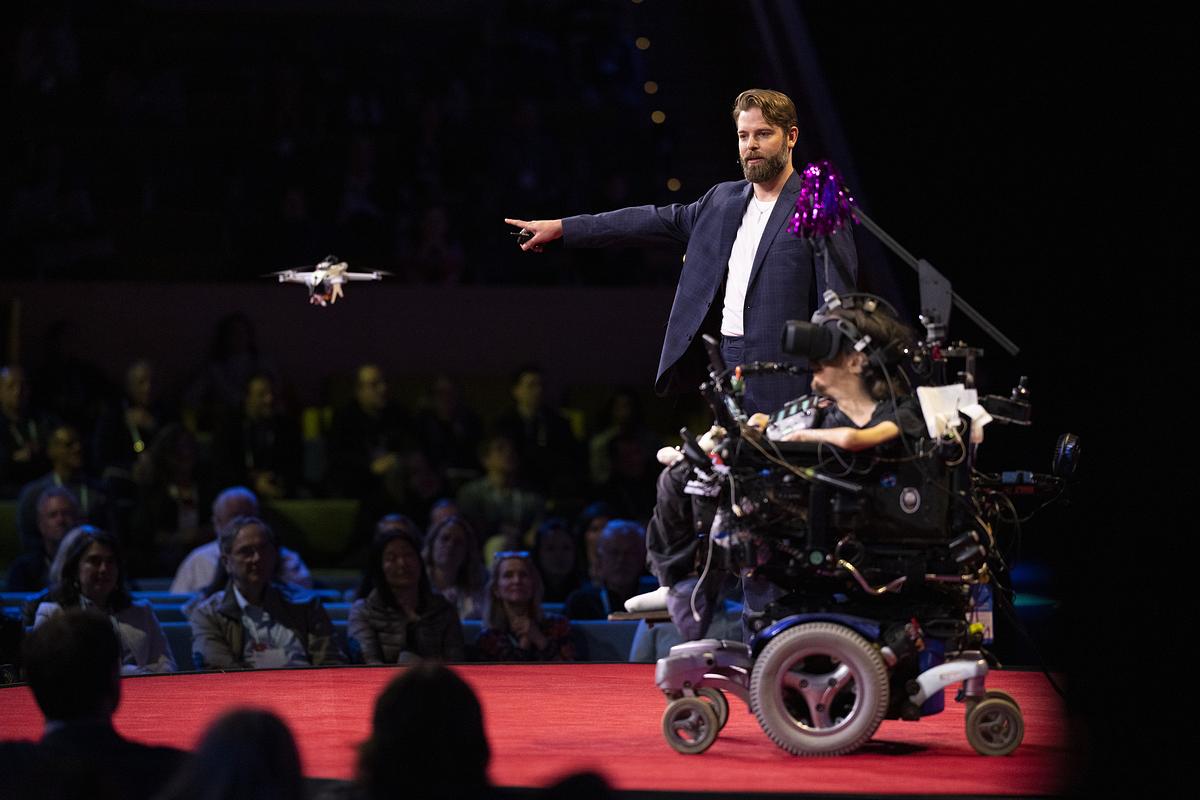
Neurotechnologist and inventor Conor Russomanno speaks at Session 6 of TED2023: Possibility on April 19, 2023, in Vancouver, BC, Canada. (Photo: Ryan Lash / TED)
Years ago, when he was a student at Parsons, neurotechnologist and inventor Conor Russomanno dreamed of peering into the workings of his own brain and created a low-cost, single-channel EEG machine to do just that. From this initial breakthrough, Russomanno has developed technology that utilizes not only the brain but also neglected muscles of the human body to create mind-blowing human-computer interfaces. With the help of collaborator Christian Bayerlein, who is wheelchair-bound due to a motor disorder, Russomanno demonstrates a system that allows Bayerlein to fly a drone over the astonished audience, using vestigial muscle control coupled with an optical headset equipped with neurosensors. Russomanno’s work emphasizes that his ultimate dream — a two-way brain-computer interface — depends as much on our entire nervous system (cognition, or “the mind”) as it does on the brain itself.
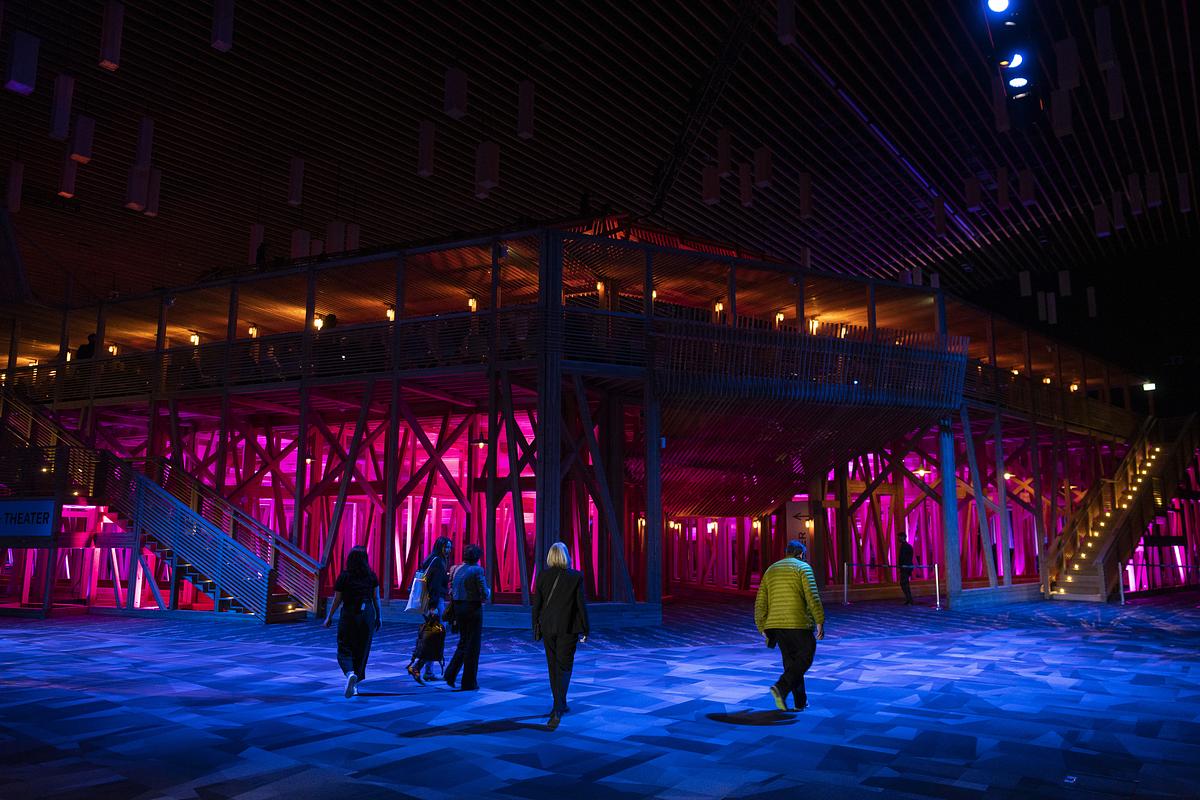
Attendees make their way into the TED Theater at TED2023: Possibility on April 19, 2023, in Vancouver, BC, Canada. (Photo: Ryan Lash / TED)